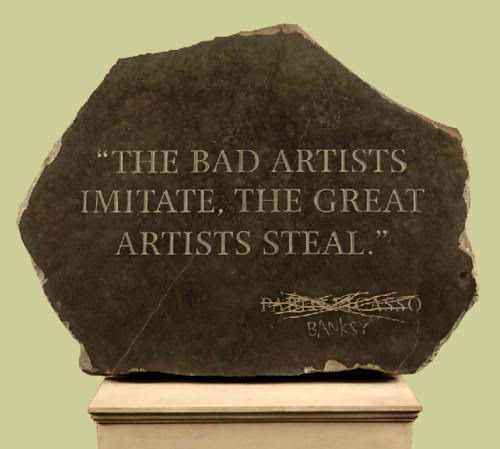A fellow player and I were talking shop a while back. It became a conversation about formal writing education, structure, character diamonds, plot prongs, et cetera. I have belatedly remembered my promise to provide a brief over view on these things. They are, in my experience, habits that the majority of consistent writers do organically even if they fail to have labels or even conscious realization for and of them. The benefit of knowing the labels, of having the vocabulary, has been for me the ability to look at my work and the work of others and within relatively short order identify what is missing or flawed. Of course, at that juncture I am better empowered to correct the situation. Now, whether I both have and take the time do it is another story. Anyway, that will be coming soon. For now, I give you one of my favorite poems: “At A Window” by Carl Sandburg. It reminds me always of my NPC Cian Noc. Give me hunger, O you gods that sit and give The words its orders. Give me hunger, pain and want, Shut me out with shame and failure From your doors of gold and fame, Give me your shabbiest, weariest hunger! But leave me a little love, A voice to speak to me in the day end, A hand to touch me in the dark room Breaking the long loneliness. In the dusk of day-shapes Blurring the sunset, One little wandering, western star Thrust out from the changing shores of shadow. Let me go to the window, Watch there the day-shapes of dusk And wait and know the coming Of a little love. |
- Getting Started
- Help
- Master Lists
- Useful Links
- Features
[Caelum's Scrapbook] Use Your Words.
(This is a thread from Mizahar's fantasy role playing forum. Why don't you register today? This message is not shown when you are logged in. Come roleplay with us, it's fun!)-

Caelum - The best way out is through.
- Posts: 1961
- Words: 1093768
- Joined roleplay: March 18th, 2010, 10:27 pm
- Location: Riverfall
- Race: Ethaefal
- Character sheet
- Storyteller secrets
- Scrapbook
- Journal
- Plotnotes
- Medals: 11
-


-


-


-


-


-

Caelum - The best way out is through.
- Posts: 1961
- Words: 1093768
- Joined roleplay: March 18th, 2010, 10:27 pm
- Location: Riverfall
- Race: Ethaefal
- Character sheet
- Storyteller secrets
- Scrapbook
- Journal
- Plotnotes
- Medals: 11
-


-


-


-


-


-

Aidara - The "i" is silent
- Posts: 1048
- Words: 946840
- Joined roleplay: October 6th, 2010, 5:20 am
- Race: Human, Inarta
- Character sheet
- Storyteller secrets
- Scrapbook
- Plotnotes
- Medals: 10
-


-


-


-


-


-

Caelum - The best way out is through.
- Posts: 1961
- Words: 1093768
- Joined roleplay: March 18th, 2010, 10:27 pm
- Location: Riverfall
- Race: Ethaefal
- Character sheet
- Storyteller secrets
- Scrapbook
- Journal
- Plotnotes
- Medals: 11
-


-


-


-


-


-

Caelum - The best way out is through.
- Posts: 1961
- Words: 1093768
- Joined roleplay: March 18th, 2010, 10:27 pm
- Location: Riverfall
- Race: Ethaefal
- Character sheet
- Storyteller secrets
- Scrapbook
- Journal
- Plotnotes
- Medals: 11
-


-


-


-


-


-

Caelum - The best way out is through.
- Posts: 1961
- Words: 1093768
- Joined roleplay: March 18th, 2010, 10:27 pm
- Location: Riverfall
- Race: Ethaefal
- Character sheet
- Storyteller secrets
- Scrapbook
- Journal
- Plotnotes
- Medals: 11
-


-


-


-


-


- Indigo
- As you wish (no1 gets princess bride quotes)
- Posts: 284
- Words: 84986
- Joined roleplay: August 31st, 2011, 10:46 pm
- Race: Staff account
[Caelum's Scrapbook] Use Your Words.
Zeltiva Lore****Zeltiva Forum****The University
Please see my absence thread if I have not responded in some way in over 24 hours
Please see my absence thread if I have not responded in some way in over 24 hours
[Caelum's Scrapbook] Use Your Words.
Getting to Know Me
[Insert awesome picture of scantily clad woman and something with wings here]
Feeling very poorly lately, have mercy on your absentee merbadger. (2/20/13)
Feeling very poorly lately, have mercy on your absentee merbadger. (2/20/13)
-

Caelum - The best way out is through.
- Posts: 1961
- Words: 1093768
- Joined roleplay: March 18th, 2010, 10:27 pm
- Location: Riverfall
- Race: Ethaefal
- Character sheet
- Storyteller secrets
- Scrapbook
- Journal
- Plotnotes
- Medals: 11
-


-


-


-


-


Who is online
Users browsing this forum: No registered users and 0 guests
 It is late. I feel the need to go hide in a corner. Take luck.
It is late. I feel the need to go hide in a corner. Take luck. 


